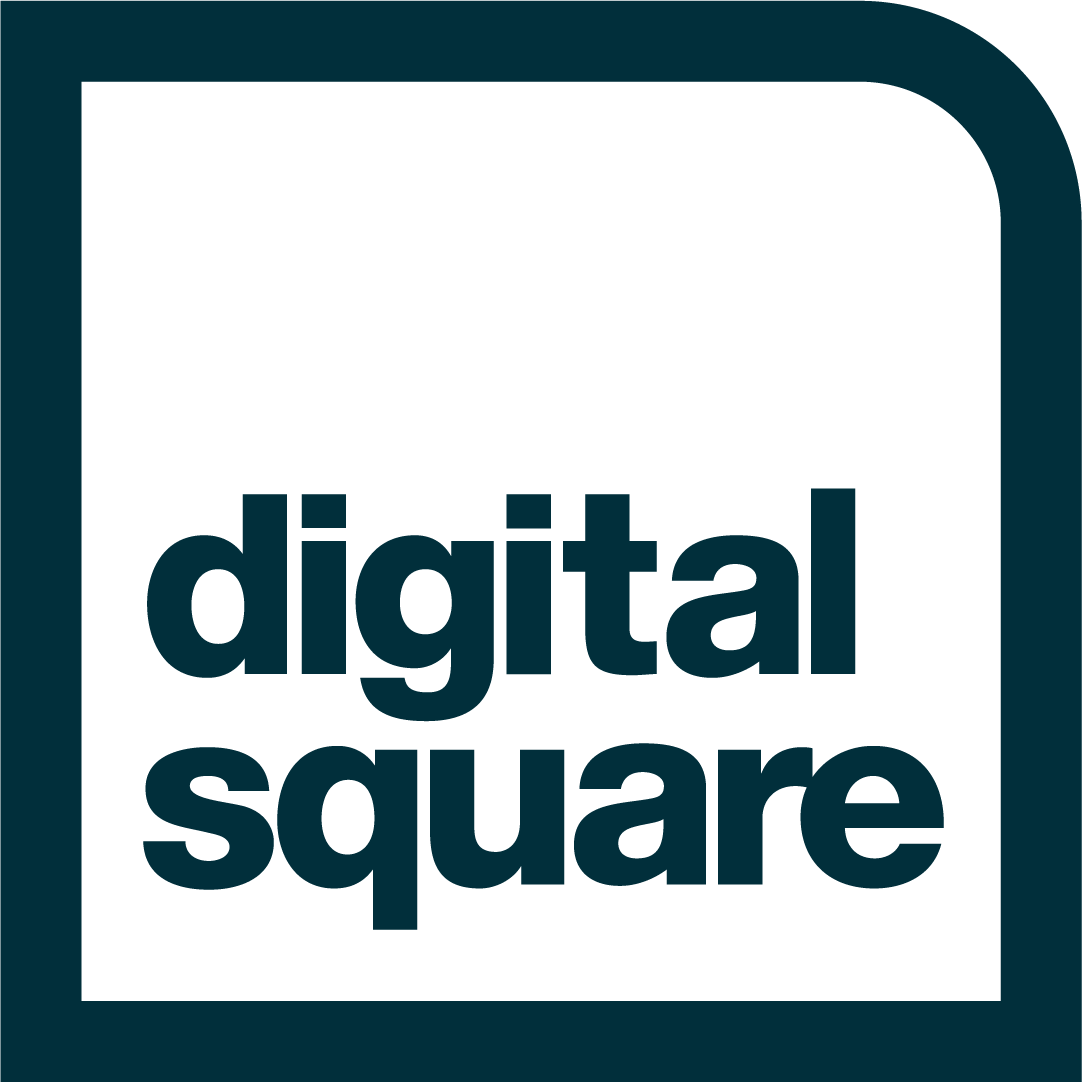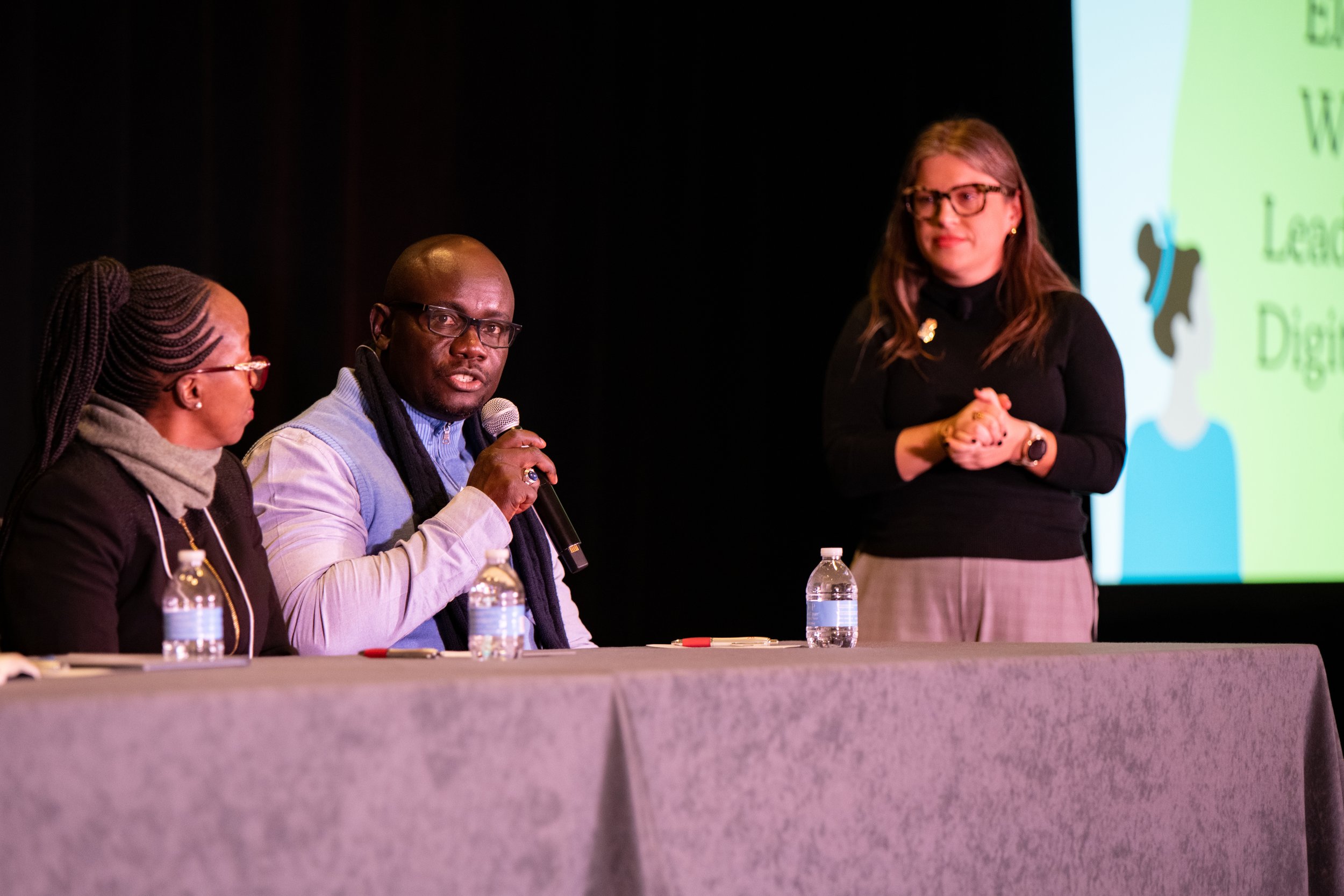Global Digital Health Forum 2022: Spurring digital health transformation through community
By: Alena Owen, Digital Square Program Officer, Strategy and Advocacy
PATH delegation at the Global Digital Health Forum. Photo: Exchange Design/Christopher Neu
Walking into the 2022 Global Digital Health Forum (GDHF) was like finding yourself in the middle of a family reunion—the space was filled with people embracing longtime colleagues, shaking hands with new ones, and a resonance of excitement for what was ahead. GDHF, hosted by the Global Digital Health Network, convened over 500 digital health advocates in-person in Arlington, Virginia, December 5–7, and invited an additional 1,500 participants online, creating a hybrid space where partnership and innovation could bloom. It was the first time GDHF had taken place in-person since 2019, and the energy was palpable.
In his opening remarks, Vilas S. Dhar, President of the Patrick J. McGovern Foundation, shared a revealing statistic: approximately 30% of the world’s data volume today is being generated by the healthcare industry. In the digital health sector, data are essential to what we do—but as Dhar contended, “data doesn’t mean we have insight, and insight doesn’t mean we have knowledge.” In order for health data to be captured, analyzed, and ultimately used to affect change, we need a broad array of well-designed policies, processes, tools, and standards in place.
Over three days at the forum, presentations and discussions attempted to answer these questions: how are health data currently being used? What systems and tools are being used in countries, and how are they capturing data across the health system? How are digital tools being made interoperable to enable data exchange, improving data quality and efficiencies in data use? And most importantly, how are countries driving their own digital health systems to support improved healthcare?
Countries leading the way in digital health
Panelists from the Senegal session, left to right: Auson Kisanga, Amadou Fall, Nathaniel Moller. Photo: PATH/Avery Wilson.
Presenters highlighted several countries as exemplars in digital health during the forum. In Tanzania, the Ministry of Health and eGovernment Authority have made strides in their digital transformation journey by creating an enabling environment comprised of services and applications designed with the user in mind. In Senegal, supported by the US President's Malaria Initiative (PMI) and Digital Square, the Ministry of Health and Social Action is leading a human-centered design approach to define a digital community health vision and strategy to ensure all health actors' needs are accounted for in a coordinated national action plan. And in Zambia, D-tree and PATH are supporting the Ministry of Health in developing a comprehensive digital community health system that is based on local needs, brings in global best practices, and has full government buy-in and ownership, showcasing the effectiveness of collaborative partnership.
These examples serve as powerful illustrations of what is possible when countries have capacity to lead their own digital health roadmaps. Said Sultana Seiff, Standards and Compliance Manager for Tanzania’s eGovernment Authority, “as a country, we are working hard to ensure that no one is left behind.”
“As a country, we are working hard to ensure that no one is left behind.”
As part of our mission to connect digital health leaders with resources necessary for digital transformation, Digital Square was excited to launch a new budgeting tool during the forum. The Total Cost of Ownership tool is easy-to-use, freely accessible, and Excel-based, designed to enable country stakeholders to understand and develop more realistic budgets for sustainable digital health interventions. By working with countries to develop tools like this, Digital Square is supporting country governments to drive and own their digital health systems.
Narrowing the gender gap in digital health
Forum attendees share takeaways from a session on elevating women’s leadership. Photo: Exchange Design/Christopher Neu
Harnessing the power of emerging technologies and approaches to improve health outcomes—and leaving no one behind in the process—was another key theme of the event. This idea was underscored during a session on elevating women’s leadership in digital health. While the potential to empower women through digital technologies is great, gender inequality and barriers to access persist.
Joseline Carías Galeano from the Central American Health Informatics Network (RECAINSA) remarked on the challenges of overcoming these barriers due to a lack of data and evidence focused on gender disparities. Galeano stated that “today, access to and use of information and communication technologies are key to expanding women’s opportunities.”
Women leaders are more likely than their male counterparts to advocate for the needs of women. Initiatives such as the Digital Health Applied Leadership Program (DHALP), RECAINSA’s Women Leaders in Digital Health program, and WomenLift Health’s Leadership Journey support women leaders in digital health and contribute to the sector-wide effort to narrow the gender equity gap.
Setting standards for interoperability
Another topic that reverberated throughout hallway conversations, panels, and keynotes was standards and interoperability. From the demonstrated impact of Fast Healthcare Interoperability Resources (FHIR) standards on Indonesia’s health system, to the practical use of the World Health Organization’s SMART Guidelines to streamline immunization registries, speakers throughout the forum agreed that standardization is a critical element of any country’s digital health architecture.
A new initiative designed to improve standardization across the digital health space is the Android FHIR Software Development Kit (SDK). Designed in collaboration with Google Health and a community of developers, the SDK is intended to make it easier for developers everywhere to adopt FHIR and support implementing partners building next-generation solutions and applications capable of meeting local needs.
Fred Hersch, Senior Product Manager at Google Health and one of the project’s designers, spoke about the SDK. “It’s been really exciting [this week] to see a lot of talk about standards and things like FHIR. It feels like there’s a community that’s trying to advocate and make progress on demonstrating the value of these things.” When asked what he is looking forward to in the coming year for digital health, Hersch responded, “a coordinated approach to demonstrate the value [of standards], to demonstrate the opportunity around data-driven healthcare and how that’s going to lead to better health outcomes.”
“It feels like there’s a community that’s trying to advocate and make progress on demonstrating the value of [standards].”
Carrying the momentum forward
As GDHF came to a close, reflections from PATH attendees fell into three common themes: community, partnership, and momentum. The opportunity to learn from experts in our field, to forge new partnerships and nourish existing ones, and to be part of the GDHF family is something that we at Digital Square hold in high regard. We look forward to carrying the momentum from GDHF forward into a new year—one full of opportunities to advance health equity through the expansion of digital tools.
Learn more
Web page (PATH): Tanzania Data Use Partnership
Success story: Spotlight on Senegal
Blog: How much do digital health interventions cost? A new tool helps countries estimate
Blog: Supporting the next generation of digital health leaders in Africa
Web page (WomenLift Health): Expanding the power and influence of talented women in global health
Web page (RECAINSA): Training program “Women Leaders in Digital Health”
Webinar series: Digital Square on FHIR




